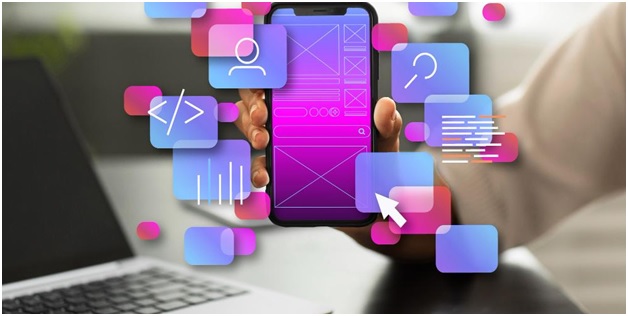The Internet of Things (IoT) has been revolutionizing the way we interact with technology for quite some time. With the rise of connected devices, IoT has become an integral part of our daily lives. From smart homes to connected cars, IoT is everywhere. As a result, mobile app development has become more important than ever before. In this blog, we will explore how IoT and mobile app development go hand in hand.

What is the Internet of Things (IoT)?
The Internet of Things (IoT) is a network of devices that are connected to the internet and can exchange data. IoT devices range from simple sensors to complex machines. These devices can be used to collect data, automate processes, and create new applications.
IoT has the potential to change the way we live and work. For example, IoT can be used to monitor the temperature and humidity in a room, automate the heating and cooling system, and adjust the lighting based on occupancy. Similarly, IoT can be used in agriculture to monitor soil moisture, temperature, and humidity to optimize crop yield.
The Role of Mobile App Development in IoT
Mobile app development plays a crucial role in IoT. The mobile app acts as a bridge between the IoT devices and the user. The mobile app allows the user to interact with the IoT devices, view data, and control the devices. The mobile app also allows the user to receive alerts and notifications from the IoT devices.
The mobile app can be customized to meet the specific needs of the user. For example, a mobile app can be developed to control the lighting, heating, and cooling in a smart home. The mobile app can be customized to the user’s preferences, such as setting the temperature and lighting levels based on the time of day and occupancy.
Custom Mobile App Development for IoT
Custom mobile app development is crucial for IoT. A custom mobile app can be designed to meet the specific needs of the user. The custom mobile app can be designed to work with specific IoT devices and can be tailored to the user’s preferences.
Custom mobile app development can be used to create new applications for IoT. For example, a custom mobile app can be developed to monitor the air quality in a room, detect the presence of harmful gases, and alert the user if the air quality is below a certain threshold. Similarly, a custom mobile app can be developed to monitor the water quality in a swimming pool, detect the presence of harmful bacteria, and alert the user if the water quality is below a certain threshold.
Custom mobile app development can also be used to improve the user experience. For example, a custom mobile app can be developed to provide real-time feedback to the user. The mobile app can be designed to provide alerts and notifications based on the user’s preferences.
Challenges of IoT and Mobile App Development
IoT and mobile app development come with their own set of challenges. One of the biggest challenges is interoperability. IoT devices come from different manufacturers and use different protocols. This can make it difficult for the devices to communicate with each other.
Similarly, mobile app development can be challenging due to the different platforms and devices. Mobile apps need to be developed for different operating systems such as iOS and Android. This can make it difficult for developers to create a consistent user experience across different platforms.
Conclusion
IoT and mobile app development go hand in hand. Mobile app development is crucial for IoT as it allows the user to interact with the IoT devices, view data, and control the devices.
